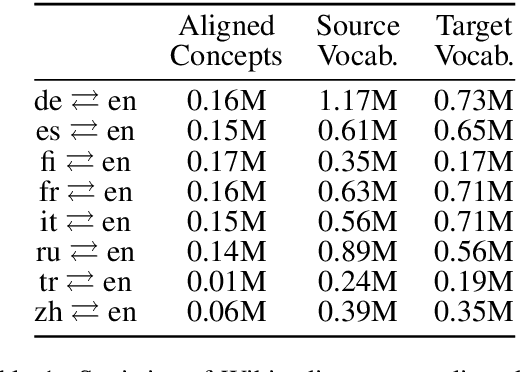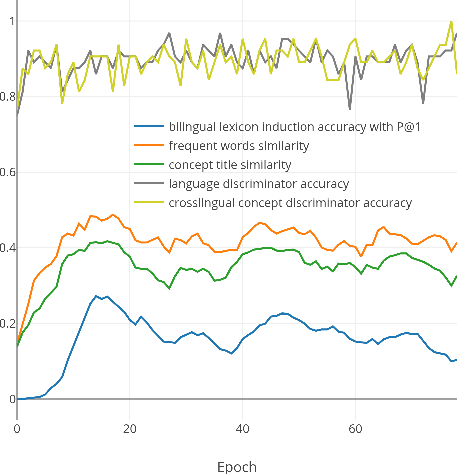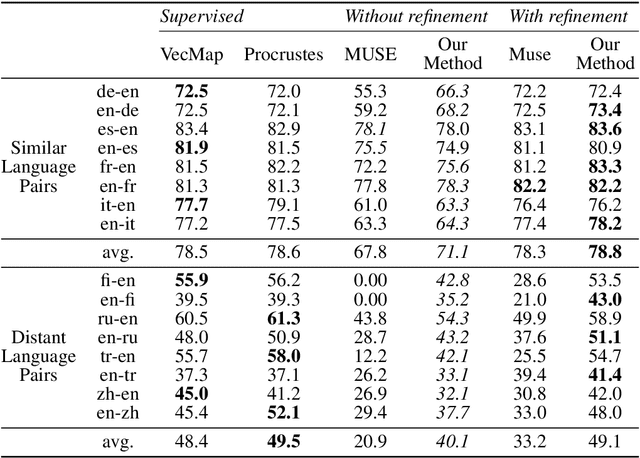Weakly-Supervised Concept-based Adversarial Learning for Cross-lingual Word Embeddings
Paper and Code
Apr 20, 2019



Distributed representations of words which map each word to a continuous vector have proven useful in capturing important linguistic information not only in a single language but also across different languages. Current unsupervised adversarial approaches show that it is possible to build a mapping matrix that align two sets of monolingual word embeddings together without high quality parallel data such as a dictionary or a sentence-aligned corpus. However, without post refinement, the performance of these methods' preliminary mapping is not good, leading to poor performance for typologically distant languages. In this paper, we propose a weakly-supervised adversarial training method to overcome this limitation, based on the intuition that mapping across languages is better done at the concept level than at the word level. We propose a concept-based adversarial training method which for most languages improves the performance of previous unsupervised adversarial methods, especially for typologically distant language pairs.
 Add to Chrome
Add to Chrome Add to Firefox
Add to Firefox Add to Edge
Add to Edge